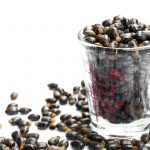Research Supports Breathing Exercises for Treatment of Cardiovascular Pathology
A recent meta analysis looked at the efficacy of using breathing exercises in the treatment of certain cardiovascular diseases.1 Specifically, the meta analysis concerned itself with heart rate (HR) and blood pressure (BP), since increases in these physiological markers are correlated with a greater frequency of cardiovascular events. Many practitioners support the use of breathing techniques in hypertension, especially when BP is resistant to change by pharmaceuticals. Naturopathic physicians use breathing techniques to which capitalize on the profound effects breathing can have on parasympathetic tone. These techniques have sparse research supporting their efficacy.
Current Breathing Study Analyzes 6 Previous Studies
The current study looked at 6 studies consisting of 269 patients. The primary outcome measure was a change in mean HR at rest, and secondary measures included systolic and diastolic blood pressure (SBP, DBP). Compliance with breathing training was also part of the inclusion criteria. The results yielded a statistically significant decrease in HR as well as a mean reduction of 6.36 mm Hg in SBP and a 6.39 reduction in DBP (both statistically significant). The duration of the trials analyzed ranged from 2 to 6 weeks. The inclusion of 1 study which looked at the effects of “slow breathing” only twice per week, likely is a confounding factor in overall mean reductions in BP not being more drastic. The primary breathing exercise utilized in all 6 studies was “slow breathing,” which included abdominal breathing, deep breathing, and other mindful breathing techniques.
Slow Breathing Benefits Patients with High BP the Most
The conclusion of the authors was that “slow breathing” could benefit patients with high BP, and at risk for cardiovascular events. The specific breathing technique did not seem to be as important in the outcome as was the amount of time spent practicing the technique. Twice daily practices were seen in the meta analysis to yield the greatest results, of a decrease in BP of over 10 mm Hg.
Source
- Zou Y, Zhao X, Hou YY, et al. Meta-Analysis of Effects of Voluntary Slow Breathing Exercises for Control of Heart Rate and Blood Pressure in Patients With Cardiovascular Diseases. Am J Cardiol. 2017;120(1):148-153.
Image Copyright: <a href=’https://www.123rf.com/profile_goodluz’>goodluz / 123RF Stock Photo</a>
 Node Smith, associate editor for NDNR, is a fifth year naturopathic medical student at NUNM, where he has been instrumental in maintaining a firm connection to the philosophy and heritage of naturopathic medicine amongst the next generation of docs. He helped found the first multi-generational experiential retreat, which brings elders, alumni, and students together for a weekend campout where naturopathic medicine and medical philosophy are experienced in nature. Three years ago he helped found the non-profit, Association for Naturopathic ReVitalization (ANR), for which he serves as the board chairman. ANR has a mission to inspire health practitioners to embody the naturopathic principles through experiential education. Node also has a firm belief that the next era of naturopathic medicine will see a resurgence of in-patient facilities which use fasting, earthing, hydrotherapy and homeopathy to bring people back from chronic diseases of modern living; he is involved in numerous conversations and projects to bring about this vision.
Node Smith, associate editor for NDNR, is a fifth year naturopathic medical student at NUNM, where he has been instrumental in maintaining a firm connection to the philosophy and heritage of naturopathic medicine amongst the next generation of docs. He helped found the first multi-generational experiential retreat, which brings elders, alumni, and students together for a weekend campout where naturopathic medicine and medical philosophy are experienced in nature. Three years ago he helped found the non-profit, Association for Naturopathic ReVitalization (ANR), for which he serves as the board chairman. ANR has a mission to inspire health practitioners to embody the naturopathic principles through experiential education. Node also has a firm belief that the next era of naturopathic medicine will see a resurgence of in-patient facilities which use fasting, earthing, hydrotherapy and homeopathy to bring people back from chronic diseases of modern living; he is involved in numerous conversations and projects to bring about this vision.










